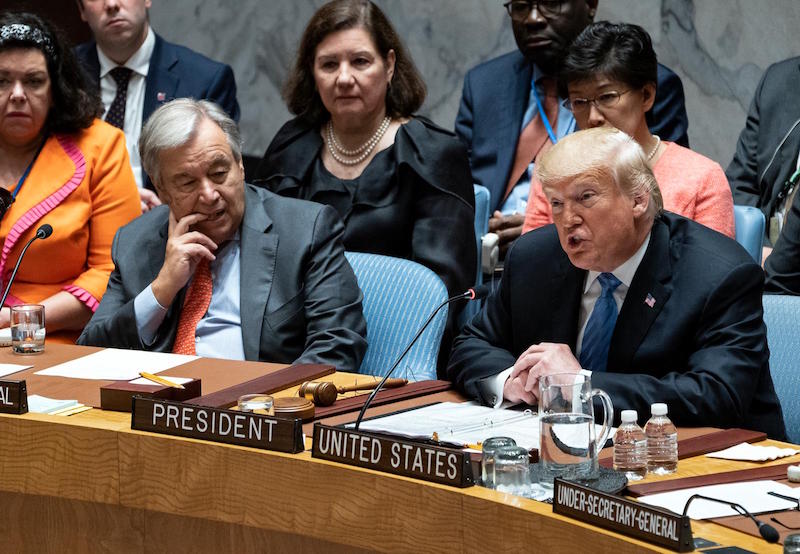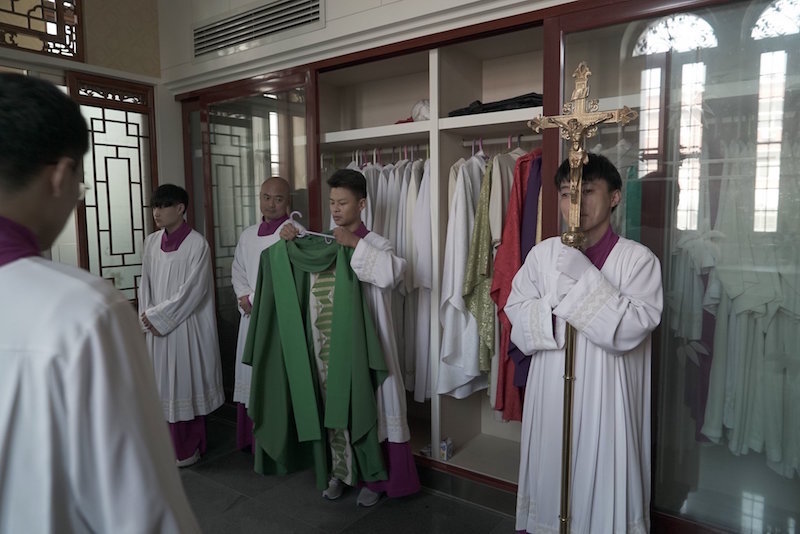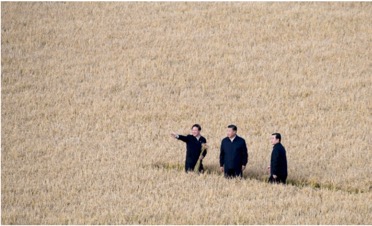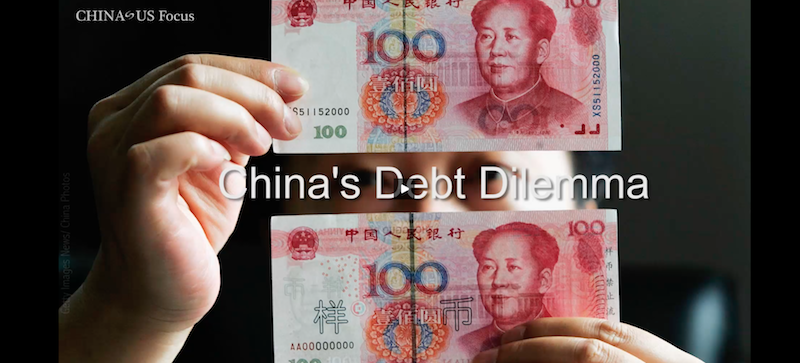
 A Turbulent Week For China-U.S. Relations at the UNGA
A Turbulent Week For China-U.S. Relations at the UNGAThis Monday, the 73rd Session of the United Nations General Assembly began, gathering state leaders from around the world in New York to debate solutions on transnational issues. President Donald Trump addressed the General Assembly on Tuesday, defending his 'America First' policies, including the escalation of trade tensions with China. "We will not allow our workers to be victimized, our companies to be cheated, and our wealth to be plundered and transferred. America will never apologize for protecting its citizens," he proclaimed.
But President Trump chose a different venue to launch new allegations against China: a meeting of the UN Security Council on nonproliferation. Accusing the country of interfering in the upcoming 2018 American midterm elections, the president said, "They do not want me or us to win, because I am the first president to challenge China on trade." His remarks were echoed by the Director of U.S. National Intelligence, Dan Coats, in South Carolina earlier this week. He argued that the country is among "the most active foreign states conducting cyber activities against the United States' interests."
Representing China at the UN, Foreign Minister Wang Yi responded to the U.S. president directly during the security council meeting: "China has all along supported the policy of non-interference in others affairs. We did not and will not interfere in any country's internal affairs and we refuse to accept any allegation of interference." Minister Wang's remarks were reinforced by an additional statement from Chinese Foreign Ministry spokesman Geng Shuang, who reiterated on Thursday that China has a firm policy of noninterference in the internal affairs of foreign countries.
As Ivo Daalder, president of the Chicago Council on Global Affairs, and James Lindsay, vice president at the Council on Foreign Relations, pointed out for China-US Focus this week, a Democratic sweep at the midterm elections may change the tone of U.S. debate regarding China, but "won't provide an off-ramp for what is shaping up to be a years-long struggle between Washington and Beijing for economic and global supremacy."
 China and the Vatican Come to an Agreement After Decades-Long Struggle
China and the Vatican Come to an Agreement After Decades-Long StruggleThe Vatican and China have finally come to an agreement over the appointment of bishops in China. Under the agreement, signed in Beijing on September 22, 2018, the Vatican will recognize the legitimacy of seven bishops appointed by the Chinese government, who had previously been excommunicated by the Vatican. Before the deal was signed, the Chinese government did not recognize papal authority on the selection of bishops. "This is the first time the Chinese government has recognized the status of the Pope within the Chinese church, and the Chinese Catholic Church as part of the universal church," said Wang Meixiu, a researcher at the Chinese Academy of Social Sciences, who called the deal "epoch making" in an interview with The South China Morning Post.
The agreement also grants the pope veto power over candidates, although details of how the selection process will work are not yet clear. Pope Francis said he hopes the deal will lead to Chinese Catholic unity and "will allow the wounds of the past to be overcome." In a letter to the Catholic Church on Wednesday, the pope reassured a Catholic community divided over the provisional agreement of the thinking behind his decision. "The Provisional Agreement signed with the Chinese authorities. . .can contribute – for its part – to writing this new chapter of the Catholic Church in China," the letter reads.
After a lengthy process of negotiation, China and the Vatican could be moving towards the normalization of relations. In a brief statement, the Chinese foreign ministry said, "China and the Vatican will continue with their communication to promote advancement and progress in bilateral relations."
 China's First Farmers' Festival Emphasizes Rural Revitalization
China's First Farmers' Festival Emphasizes Rural RevitalizationThe mounting China-U.S. trade war is forcing China to rely more on itself, but according to President Xi Jinping, that may not be a bad thing. Two days after President Trump imposed additional tariffs on Chinese imports, President Xi – on a visit to China First Heavy Industries, one of China's biggest state-owned factories – said that China must "depend on itself for food supply, depend on itself for economic development, and depend on itself for manufacturing." While the trade war has presented the country with significant economic challenges, farmers may be set to become the beneficiaries of the Chinese government's drive for self reliance.
With China's retaliatory tariffs on U.S. imports, the price of soybeans has fallen by more than 20 percent. Many American farmers can't afford to sell their soybeans at a reduced price, so with a reduction in exports of U.S. soybeans, local output in China is becoming more significant. Chairing a group study session of the Politburo on rural revitalization last Friday, President Xi called for a boost in investment in agricultural infrastructure and the promotion of a "two-way free flow of talent, land, and funding between urban and rural areas." China celebrated a new national festival, the first "Chinese Farmers' Harvest Festival," this past Sunday. Going forward, the festival is to be celebrated on the Autumnal Equinox of each year to welcome the harvest and "boost farmers' confidence," according to a local official in Xingtai, Hebei province.
 China's Debt Dilemma
China's Debt DilemmaThe International Monetary Fund estimates China's debt to be about 230 percent of its gross domestic product (GDP). For comparison, the United States' debt is about 105 percent of its GDP, according to the U.S. Bureau of Public Debt. From the onset of the global financial crisis, China's debt accumulation has been one of the largest in modern history.
Last year, President Xi Jinping cited debt as one of the biggest risks to the country's stability. Consequently, the government began a campaign to reduce debt, leading to a much slower buildup of debt in 2017 than in previous years. In our latest video, China-US Focus explores the extent to which China will be able to continue this trend without sacrificing its economic growth targets. Watch the full video here.
Prepared by China-US Focus editorial teams in Hong Kong and New York, this weekly newsletter offers you snap shots of latest trends and developments emerging from China every week, while adding a dose of historical perspective.
- 2018-09-21 China Will Not Purposefully Devalue the Yuan, Premier Li Keqiang Says
- 2018-09-14 China and the U.S. Discussing New Trade Talks, As Pressure Over Trade Policy Grows
- 2018-09-07 Forum on China-Africa Cooperation Yields New Pledges
- 2018-08-31 BRI’s Fifth Anniversary Comes Amidst Debate Over Sustainability
- 2018-08-24 Trade Talks Continue in DC as New Tariffs Hit
- 2018-08-17 Trade Talks Back On
- 2018-08-10 American Natural Gas Industry Braces for New Chinese Tariffs
- 2018-08-03 Tentative Signs of U.S.-China Cooperation at the ASEAN Summit
- 2018-07-27 President Trump’s Trade War Bailout
- 2018-07-20 Xi Charms the World
- 2018-07-13 China Defends WTO Record in the Face of Additional U.S. Tariffs
- 2018-07-06 The Trade War Begins
- 2018-06-29 President Trump Chooses Slightly Softer Option on Chinese Investment
- 2018-06-22 Trade Tensions Spark Stock Sell-Off in China
- 2018-06-14 How “Comprehensive” Is the Kim-Trump Agreement?
- 2018-06-08 China Awards Putin First Medal of Friendship
- 2018-06-01 USPACOM Rebranded As U.S. Indo-Pacific Command
- 2018-05-25 Trump Cancels North Korea Meeting
- 2018-05-18 The On/Off Trump-Kim Summit
- 2018-05-11 American Goods Are Stuck at Chinese Ports